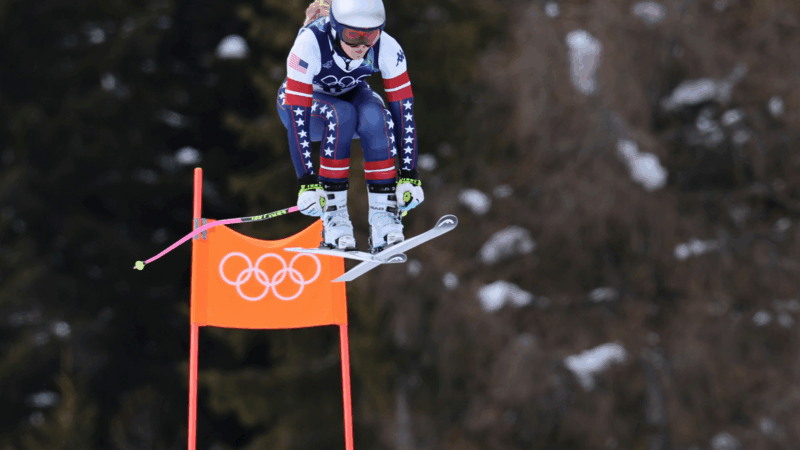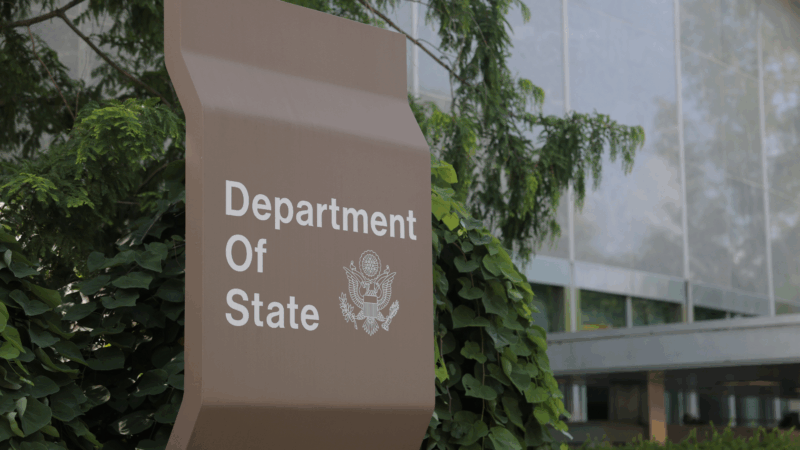Crawfish prices are finally dropping, but farmers and fishers are still struggling
Adler Stelly has been farming crawfish for his entire life. He said he’s been hit hard by the drought.
By Eva Tesfaye/WWNO & Maya Miller/Gulf States Newsroom
It’s a cloudy day in mid-March, and Adler Stelly is harvesting crawfish on the flooded 3,000 acres he and his brother own in Abbeville, Louisiana. He flooded his fields regularly during last year’s drought in hopes of keeping his crawfish alive.
On this day, he harvests a good amount of decent-sized crawfish. He bags about 20% of what he normally catches — a bit more than what he’s averaged per catch lately, but it won’t be enough to save the harsh season he’s endured.
“There’s no way I’m making back the money that we have out there, but there are crawfish starting to come in areas,” Stelly said. “We do need the consumers to come in and start eating a few.”
Crawfish farmers and wild fishers are navigating one of the worst seasons for seafood crops ever after a summer drought led to low crawfish numbers. Farmers are hoping for a bail-out from the federal government but, for some, that help hasn’t come quickly enough.
Stelly has been crawfish farming his entire life, and he said this is the worst season he’s ever seen. Inflation has already hit his farm hard, with the price of labor and bait increasing. His only silver lining is that he plans to pass the farm along to his daughter, and he’s glad this happened before she takes over.
“As hard as it is to take this type of hit, I’m just glad that it’s happening to me after I’ve been in business for a few years and not happening to her in her first year of trying to get in business on her own,” he said.
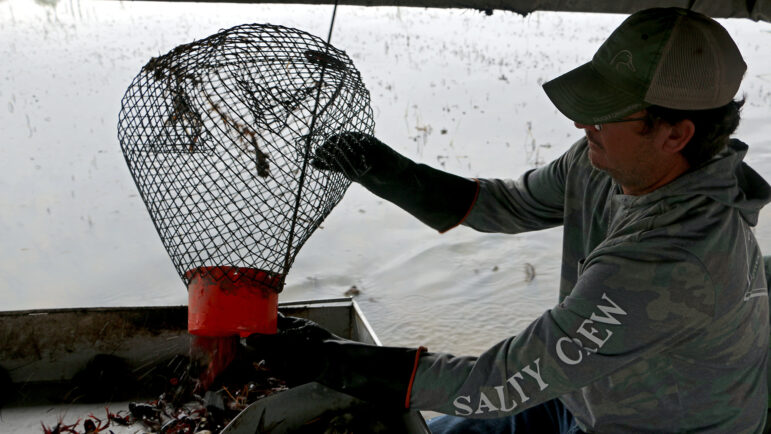
Consumers are also feeling the squeeze from the drought through high prices at fish markets, with live crawfish costing around $7 a pound. Prices are slowly going down as the season nears its end, but rates across the region are still higher than the usual average.
Stelly said last year’s drought also made farming costs even higher after he had to flood his fields much more than he normally would. The drought and extreme heat also killed a good portion of crawfish crops. Mark Shirley, an extension agent with Louisiana State University AgCenter, said the ground became so dry the crawfish couldn’t breathe.
“There was no moisture to keep the gills working and they just died,” Shirley said. “Probably 90% or more of the crawfish died in their burrows during the summertime.”
On top of this season’s losses, farmers have the added expense of paying to replace the crawfish needed for breeding for next year. Mike Strain, Louisiana’s Department of Agriculture and Forestries commissioner, said this drought will cost the industry upwards of $140 million this year.
“Some of the farmers quit fishing completely because there are no crawfish,” Strain said.
Strain, as well as some Louisiana lawmakers, reached out to the U.S. Department of Agriculture for help. Through the Emergency Livestock Assistance Program, farmers could receive payments to cover debts and farming expenses, which Strain said would provide much-needed relief.
“Many of them cannot get another crop loan because they were not able to pay off last year’s crop loan,” he said. “They desperately need those dollars.”
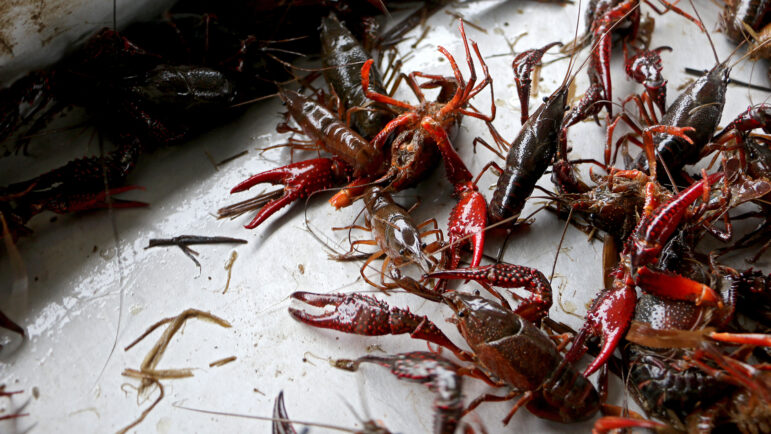
Louisiana Gov. Jeff Landry even made a disaster declaration to speed up the process, but some in the industry will still be left out of the assistance.
Jody Meche, a third-generation fisherman living near the Atchafalaya Basin in South Louisiana, has been trapping wild crawfish for over 30 years. But he’s not eligible for that federal relief because he fishes for crawfish and resells them rather than farms them.
“We don’t ever get any help from the government,” Meche said.
He said Basin water levels have been declining for the past few decades, which means less habitat for the crawfish. He’s had to figure out each slow season on his own.
“When COVID hit, we suffered the loss in the market shutting down the same way the crawfish farmers did,” he said. “Our congressional delegation got millions of dollars of help for the farmers and the basin fishermen got no help at all.”
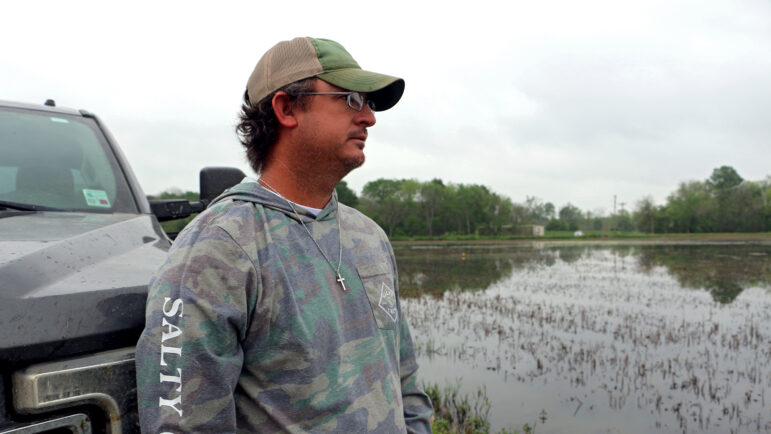
In March, the Small Business Association began offering low-interest loans for small businesses impacted by last fall’s drought, but unlike the federal relief, fishers would be responsible for repayment.
During a good season, Meche would collect about 1,000 pounds of crawfish every day. Now, he’s barely breaking a few hundred. On a good day, he can make about $800 for a day’s work. But with fuel for his boat and bait for his traps racking up costs, he’s still thousands of dollars in the hole.
Crawfish fishing, however, is what he was raised to do, and he wants to continue his family’s legacy — even through the hard times.
“That history and tradition of following in my father’s and my grandfather’s footsteps, of being able to make a living and sustain my way of life by going into the wild and catching something to provide an income for me and my family,” he said. “It’s just that drive to not be a failure and to be able to continue to do it like they were able to do it.”
This story was produced by the Gulf States Newsroom, a collaboration between Mississippi Public Broadcasting, WBHM in Alabama, WWNO and WRKF in Louisiana and NPR.
They’re cured of leprosy. Why do they still live in leprosy colonies?
Leprosy is one of the least contagious diseases around — and perhaps one of the most misunderstood. The colonies are relics of a not-too-distant past when those diagnosed with leprosy were exiled.
This season, ‘The Pitt’ is about what doesn’t happen in one day
The first season of The Pitt was about acute problems. The second is about chronic ones.
Lindsey Vonn is set to ski the Olympic downhill race with a torn ACL. How?
An ACL tear would keep almost any other athlete from competing -- but not Lindsey Vonn, the 41-year-old superstar skier who is determined to cap off an incredible comeback from retirement with one last shot at an Olympic medal.
State Department will delete X posts from before Trump returned to office
The policy change orders the removal of any post made by official State Department accounts on X before President Trump returned to office in 2025.
Trump promised a crypto revolution. So why is bitcoin crashing?
Trump got elected promising to usher in a crypto revolution. More than a year later, bitcoin's price has come tumbling down. What happened?
The CIA World Factbook is dead. Here’s how I came to love it
The Factbook survived the Cold War and became a hit online. It mixed quirky cultural notes and trivia with maps, data, and photos taken by CIA officers. But it was discontinued this week.



